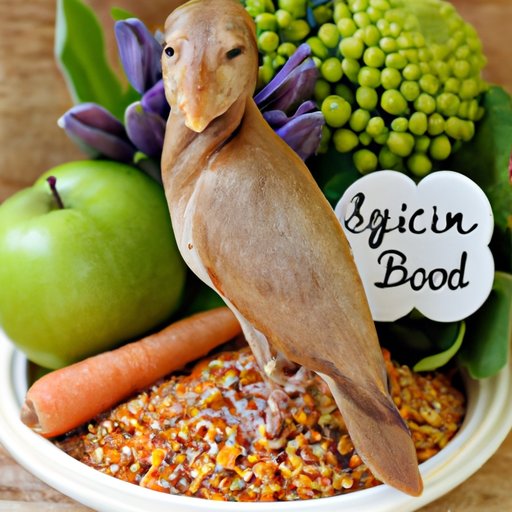
I. Introduction
Irritable Bowel Syndrome (IBS) is a common gastrointestinal disorder characterized by symptoms such as abdominal pain, bloating, and altered bowel habits. While there is no known cure for IBS, dietary changes have been shown to help manage symptoms and improve quality of life.
II. The Ultimate Guide to Understanding Irritable Bowel Syndrome and Diet: Finding Relief through Food Choices
It can be overwhelming to figure out what foods to eat and avoid when dealing with IBS. The first step is to identify trigger foods, which vary from person to person. It’s recommended to keep a food journal to track symptoms and identify patterns. Once trigger foods are identified, the focus shifts to creating an IBS-friendly diet.
III. The Low FODMAP Diet and IBS: Does It Actually Work?
FODMAPs are short-chain carbohydrates that are poorly absorbed in the small intestine. The low FODMAP diet involves eliminating high FODMAP foods for a period of time before reintroducing them to determine tolerance levels. Research has shown that the low FODMAP diet can be effective in managing IBS symptoms.
IV. IBS and Gluten Sensitivity: Separating Fact from Fiction in Dietary Recommendations
Gluten is a protein found in wheat, rye, and barley. Some individuals with IBS may have gluten sensitivity, meaning their body can’t properly digest gluten. Research suggests that a gluten-free diet may be effective in managing IBS symptoms in those with gluten sensitivity. However, it’s important to note that not all individuals with IBS are sensitive to gluten.
V. Exploring the Connection between Gut Health and IBS: Best Foods to Eat (and Avoid) for Optimal Digestive Health
The gut-brain axis plays a significant role in IBS. It’s important to focus on consuming gut-healthy foods, such as probiotics, fiber-rich foods, and anti-inflammatory foods. On the other hand, high-fat foods, processed foods, and artificial sweeteners should be avoided.
VI. Vegetarian, Vegan, or Paleo: Which Diet is Best for Soothing Irritable Bowel Syndrome Symptoms?
There are various diets, such as vegetarian, vegan, and paleo, that can be modified to be IBS-friendly. It’s important to weigh the pros and cons of each diet based on individual needs and preferences. For example, a paleo diet may be beneficial for those with IBS-D, while a vegetarian or vegan diet may be helpful for those with IBS-C.
VII. Navigating the Grocery Store with IBS: A Complete Shopping Guide for Those Seeking Relief through Diet
When grocery shopping with IBS, it’s important to read food labels carefully and avoid trigger foods. Stock up on IBS-friendly foods, such as lean protein, low FODMAP fruits and veggies, and gluten-free grains. Supplements, such as probiotics and digestive enzymes, may also provide relief from symptoms.
VIII. Conclusion
Managing IBS can be challenging, but dietary changes can provide relief from symptoms. It’s important to identify trigger foods, incorporate gut-healthy foods, and avoid processed foods. The low FODMAP diet and gluten-free diet may also be effective for some individuals with IBS. Remember to consult with a healthcare professional before making any major dietary changes.





